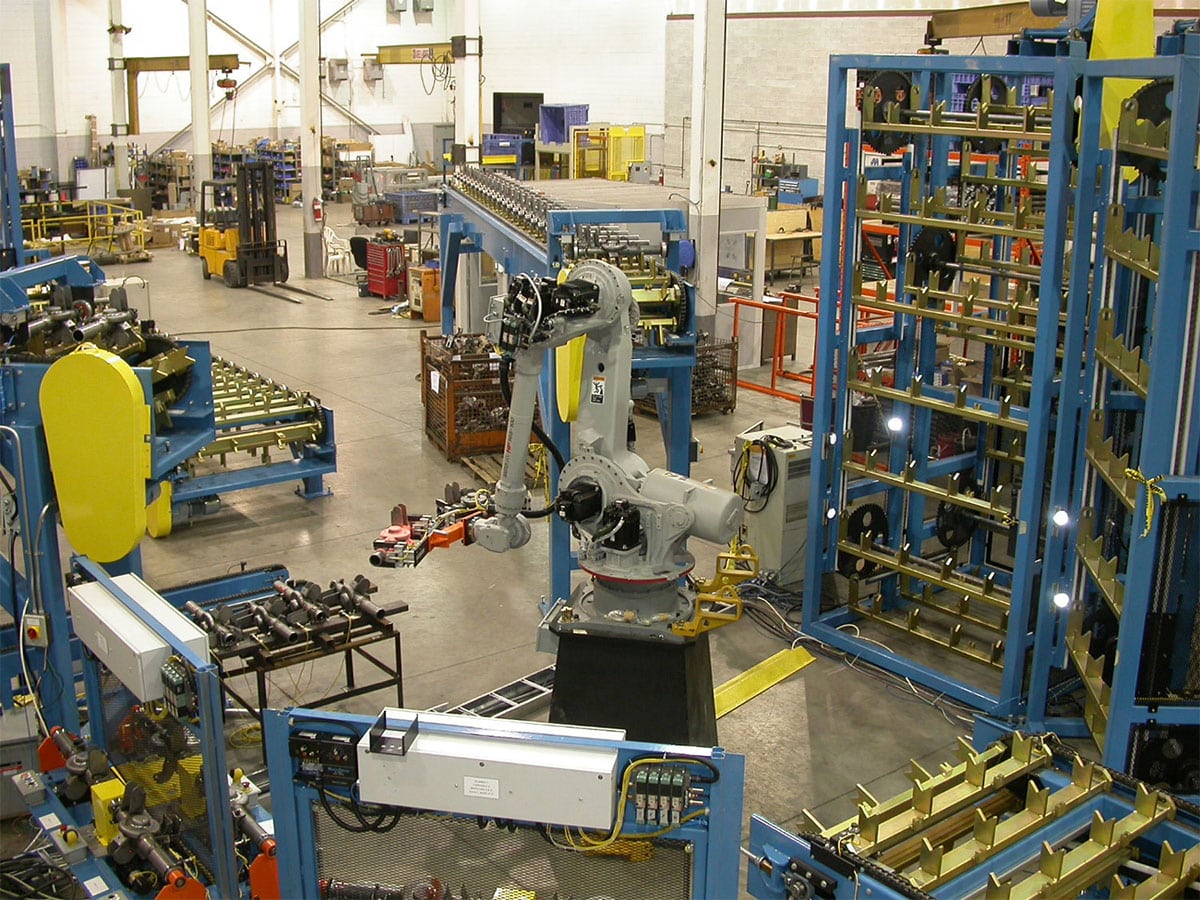Industrial robots and robotics are key innovations and efficiency drivers in today’s rapidly changing manufacturing landscape. Integration of industrial robotics into manufacturing processes has transformed the manufacturing industry, providing an array of advantages for businesses looking to improve productivity, quality, and competitiveness. Manufacturing robots will play an increasing role in shaping manufacturing’s future as demand for solutions that automate production increases.

Manufacturing robots, also known as industrial robots are machines that are designed to complete diverse tasks within the manufacturing process. They can be used for welding paint, assembly, packaging and picking, and other things. Industrial robotics, the field of research and application of these robots is focused on increasing the efficiency and accuracy of manufacturing operations.
Automated Solutions Australia is one of the businesses at the leading edge. They specialize in industrial robots which offer a flexible automation solution for manufacturing clients. ASA robotics for manufacturing in industrial settings aim to give clients an edge in the market by increasing their efficiency and quality. ASA industrial robotics are highly sought after by companies across a variety of industries, such as pharmaceuticals, electronics and automotive.
The advantages of industrial robots can be numerous. One of the main benefits is the significant increase in productivity and efficiency. Industrial robots complete routine tasks in a precise and consistent manner and result in higher production rates. This is not only a boost to overall efficiency but also allows businesses to meet increasing consumer demands with ease.
Additionally, industrial robots enhance quality control in manufacturing processes. Because they can perform tasks with precision and resiliency, they minimize the margin of error leading to better quality products. This results in a higher rate of satisfaction from customers as well as a stronger reputation for the company.
Industrial robots offer not only high-quality and efficiency, but also cost-saving advantages. While the initial investment in manufacturing robots may seem substantial, the long-term cost savings are significant. Businesses are able to quickly pay back their investment by reducing their operational costs through streamlining production and eliminating the need for human labor. In addition, industrial robots work around the clock optimizing resource use and decreasing production costs.
Industrial robots’ impact’ effects on the working environment is a further compelling advantage. The robots create very little of noise, resulting in an environment that is quieter and more comfortable for workers. Their efficiency and speed contribute to a safe workplace in reducing the dangers of injuries and accidents that are associated with manual working.
The emergence of industrial robots can play a significant role in the creation of jobs as well as the future job. Industrial robots can generate new employment opportunities even though there is a fear that automation will take over humans. This is the case for roles in robotic programming maintenance, oversight, and control, as well as the development of innovative technology to aid in the production of robots.
Manufacturing companies continue to recognize the benefits of industrial robots. Businesses across various sectors are reaping the benefits of this transformative technology. Industrial robotics has the ability to increase efficiency, cost effectiveness and the quality of products. It is transforming the industry of manufacturing and set new standards of excellence.
In conclusion, the emergence of industrial robots and manufacturing robotics is a paradigm shift in the field of manufacturing. These cutting-edge technologies allow firms to attain unprecedented levels of efficiency, precision, and competitiveness. As the use of automation continues to expand, industrial robots will play a key part in shaping the future of manufacturing by accelerating innovation and propelling companies to success on the global market.